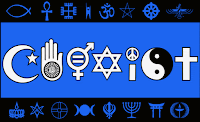In his book entitled The
Resilient Pastor, the Barna senior fellow examines the newest surveys and
confirms what pastors already know — that ministers are not as respected and
influential in American society as we used to be. In summarizing his findings
Packiam writes: “Pastors, for the most part, are peripheral and ornamental.
Quaint, but not entirely necessary. Kind, but not wholly credible.”
Ouch! That hurts! Especially that “ornamental” part. It
sounds like irrelevancy. Clergy do not want to be thought of as irrelevant. But,
alas, I think he is speaking the truth, which is why it hurts. Most people in
today’s society view clergy as anachronisms. They are “quaint,” like a country
cottage or a New England white clapboard church. It doesn’t help that I live in
in the country and served such a church!
One interesting aspect of the research is that clergy concur
with the study’s findings. We are aware of the trend, and we are part of it. Pastors
do not find their fellow clergy as trustworthy as they used to be. I find
clergy increasingly unreliable in many areas: science, history, politics, sexuality,
ethics, and even spirituality. Many seem vulnerable to conspiracy theories.
Part of the problem is the lack of education. Many pastors these
days lack a basic undergraduate liberal arts education, much less a graduate theological
education. Consequently many pastors are unknowledgeable of science and
history, as well as biblical and theological scholarship. Not trained to think
critically, these pastors follow the trends of popular evangelical culture and
its celebrity pastors.
Even seminary-trained clergy have seen the writing on the church wall. They know that to be “successful” they need to play the game. They have to give the people in the pews what they want. Increasingly church folk want what they hear on Christian radio, television, and online. I find such clergy “not wholly credible,” to use Packiam’s phrase.
Now about the “quaint” label. As I think about it, perhaps I
am quaint. If so, I am okay with that. Quaint is defined as “unusual or different
in character or appearance.” Synonyms are “unusual, bizarre, eccentric,
curious, peculiar, queer, odd, whimsical, strange, and outlandish.” I am okay
with all those designations. I will wear the slur of quaint as a badge of
honor.
Even “peripheral” is not such a bad term. Jesus was on the
periphery of the religion of this day. He hung out with the people on the margins
of society, yet his influence was not marginal. Seeking to follow my Lord, I am definitely on the periphery of today’s Christianity. Does that
make me “peripheral?” If so, I am glad. I would not have it any other way.
I am connecting with a wider range of people now than I ever
did when I was in mainstream ministry as a fulltime pastor. I reach more people
with my books, podcasts and videos than I did with my weekly in-person sermons
and Bible Studies. So call me quaint. Call me peripheral. Call me “unusual,
bizarre, eccentric, curious, peculiar, queer, odd, whimsical, strange, and
outlandish.” But please don’t call me ornamental.













